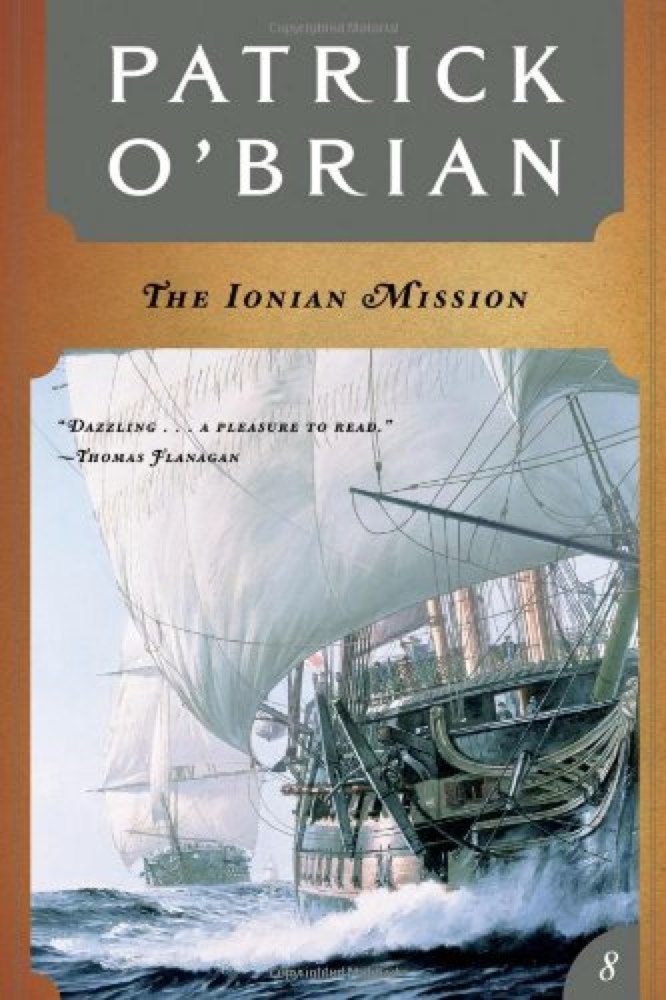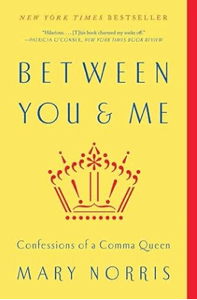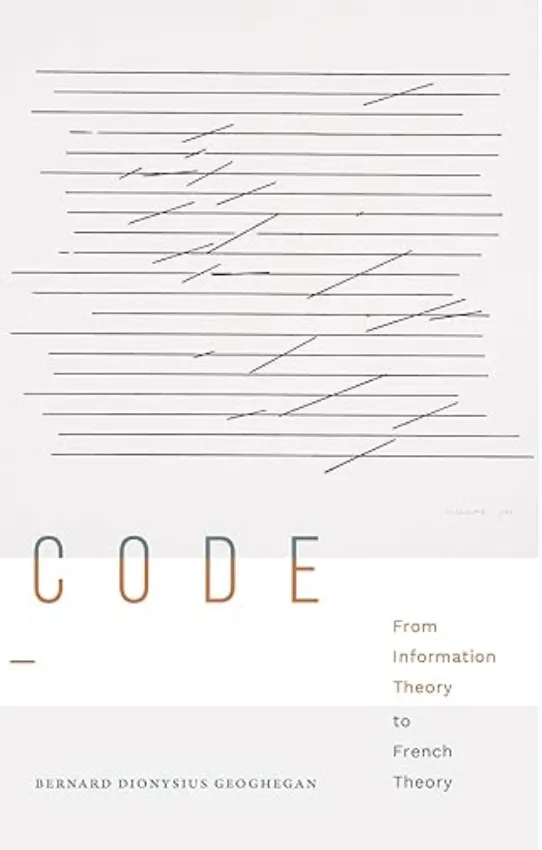Here's what I've been reading lately.
I try to write a short note on each book I read. This helps me think more clearly about what I'm reading — and about what I haven't found time to read. It's also a very handy way to find half-remembered titles.
I use Tinderbox agents to build pages for some of my favorite essayists, including Roger Ebert, David Mamet, and Louis Menand.
1127 Books: by author | by title
2021 Fall | Summer | Spring | Winter
2020 Fall | Summer | Spring | Winter
2019 Fall | Summer | Spring | Winter
2018 Fall | Summer | Spring | Winter
2017 Fall | Summer | Spring | Winter
2016 Fall | Summer | Spring | Winter
2015 Fall | Summer | Spring | Winter
2014 Fall | Summer | Spring | Winter
2013 Fall | Summer | Spring | Winter
2012 Fall | Summer | Spring | Winter
2011 Fall | Summer | Spring | Winter
2010 Fall | Summer | Spring | Winter
2009 Fall | Summer | Spring | Winter
2008 Fall | Summer | Spring | Winter
2007 Fall | Summer | Spring | Winter
2006 Fall | Summer | Spring | Winter
2005 Fall | Summer | Spring | Winter
2004 Fall | Summer | Spring | Winter
2003 Fall | Summer | Spring | Winter
2002 Fall | Summer | Spring | Winter
2001 Fall | Summer | Spring | Winter
2000 Fall | Summer | Spring
It’s 2008, and the Yiddish-speaking enclave of refugee Jews on the island of Sitka will soon revert to Alaska. Homicide detective Meyer Landsman is trying to solve one last murder case before everything falls apart, even if it’s just a dead junkie who lives in the same fleabag hotel as Landsman. Absolutely terrific: Chabon lays out a carnival of Yids in all their varieties.
Wonderful dialogue.
"Do you suppose. Detective Landsman, that my wife would ever attempt to subvert my authority with respect to this or any other matter?"
"I suppose everything, Rabbi Shpilman," Landsman says. "I don't mean anything by it."
July 14, 2024 (permalink)
In 722 BCE, Assyria defeated the northern kingdom of Israel. The southern Kingdom of Judah remained nominally independent until 587. In the wake of those defeats, and the universal dominance of great empires, newly unemployed scribes of both kingdoms sought for a way to remain relevant and to preserve an audience for the literature they treasured. The Bible is the fruit of their editorial work, a document of resistance, skepticism, and of the unending quest for knowledge.
June 7, 2024 (permalink)
This interesting but unlikable book on the decision to go to war in Vietnam was written by a US Army major in 1997. Later, the author disgraced himself by serving as Trump’s National Security Advisor; it is, alas, not hard to see the path McMaster had already paved, two decades before.
McMaster is at pains to show that the Joint Chiefs of Staff were sidelined in the course of this decision, and deeply critical of their willingness to accept being sidelined. Throughout the critical year, the Joint Chiefs were deeply divided by bureaucratic infighting and by inter-service competition. Oddly, though McMaster observes that JFK (and Defense Secretary Robert S. McNamara) did not, as a rule, have great respect for military expertise, he makes no effort at all to explore why they felt as they did. Kennedy and McNamara were smart, and liked to be seen as smart. They’d each had spectacular careers in World War II. A lot of contemporary literature — The Caine Mutiny, Catch-22, even The Naked and the Dead — explores reasons for this mistrust. It’s not a secret or an aberration.
Though the Joint Chiefs want to be consulted, their deliberations seldom or never considered Vietnam or the Vietnamese in any detail. McMaster’s failure to notice that is significant.
McMaster, in castigating LBJ for placing his domestic agenda ahead of winning the war, repeats the dereliction of which he indicts the Joint Chiefs. South Vietnam was doomed in 1963; it is seldom mourned. The Johnson agenda which McMaster would have sacrificed to prop it up included civil rights, voting rights, and Medicare: changes that transformed and improved the nation, even if they didn’t help Army beat Navy.
Is there a reasonable biography of Curtis LeMay? Email me.
May 24, 2024 (permalink)
This thriller, recommended by The NY Times Book Newsletter, centers on Crissy Dowling, a Las Vegas actress and Princess Diana impersonator. She is the princess of Las Vegas impersonators, many of whom feature prominently. Crissy is just a little bit bulimic, and perhaps just slightly too prone to indulge in pills. But she’s got a free suite in a Las Vegas casino, a free cabana, and her two shows nightly are booked well in advance. Then, both owners of her casino kill themselves. Crissy’s sister — who looks a lot like Crissy — moves to Las Vegas, trading a career in social work for a Vegas-based cryptocurrency startup. She has a new boyfriend and a newly-adopted daughter who is uncannily smart.
It’s a nifty setup, and Bohjalian keeps everything simmering. The tone is unsettling: much of this is funny and many of the characters picaresque, but Bohjalian takes the picaresque characters just seriously enough that this doesn’t become a romp.
May 5, 2024 (permalink)
Service Included
Stephanie Damrosch
Bourdain’s Kitchen Confidential, which transformed food writing, was modeled on Down and Out In Paris. Stephanie Danler’s wonderful novel of working the front of the house, Sweetbitter, follows the plan of The Naked and The Dead. This account of waiting tables at Per Se is clearly Two Years Before The Mast: we were not made for this job and we never completely belong to this world, but having taken the job we are going to do our level best to make it work.
April 3, 2024 (permalink)
A very fine time at sea, revisiting part of what really was the great historical fiction series of the century. Wonderful characters, tons of detail, a very fine sense of place (and that place is often afloat), and a deft avoidance of perfunctory scenes.
April 2, 2024 (permalink)
Zinnia Zompa is 13. She lives outside Providence with her sister Zenobia, who is a nuisance, and with her parents, who are perplexing. Her father runs a factory that makes plastic beads. He drives a Lincoln, but it has been stolen. Dad’s accountant was Mr. Marfeo, who was recently murdered in the back seat of a yellow Mercury. “What it means to be thirteen: you scoff at your brokenhearted mother, and death just feels like a change in the weather.” Dazzling, haunting, and finely wrought, this is a short novel of wondrous shadows just slightly out of reach.
March 28, 2024 (permalink)
November 1942
Peter Englund
A fascinating group biography of the critical month in World War II, where the group is, basically, everyone. Englund describes details from the daily life of a fascinating range of people: a German junior officer stationed near Leningrad, an Italian junior officer adrift in the North African desert, an Australian prisoner of war, an Auschwitz inmate, a Jewish family in Shanghai, a Malaysian sailor whose freighter has been sunk and who is adrift in the South Pacific. A few of the group are famous, but weren’t famous then: Sophie Scholl, Albert Camus. Most remain obscure. No one had a good month.
March 25, 2024 (permalink)
Oh, this was fun! Mary Norris was the longtime comma queen of The New Yorker, the person responsible for ensuring that you and I agree and that people from Manchester can be Mancusians if they (and the writer) like. The English language is full of odd nooks and crannies, and Norris explores them with wit and humor.
March 12, 2024 (permalink)
After the Second World War, American foundations worked with the CIA to rebuild the intellectual world of Western Europe. Code explores the intersections between big ideas and big money; structuralism, in particular, received crucial boosts from American grants, and returned the favor by favoring a technocratic, rather than strictly social, solution to France’s postwar crisis. Geoghegan tends to posit that all robber barons were alike and that the foundations that lived after them are mere extensions of their interests, and so we learn little about the foundations and even less about the CIA programs they supported. The impact in France was crucial, and this volume documents that impact with precision and finesse.
March 11, 2024 (permalink)
A fine debut novel by the author of True Biz. Ana Jurić of Zagreb was ten when she discovered she was Croatian, or rather that the cigarettes her uncle sent he down the street to buy for him are Croatian cigarettes, and that this provokes ridicule from the Serbian shopkeeper. That was the beginning of Ana’s war. Ten years later, she sneaks away from her Columbia University roommates to testify about her years as a child soldier. Sara Novic does a terrific job of showing the line between these two girls.
March 4, 2024 (permalink)
English Journey
J. B. Priestly
Anne Louise Avery wrote:
Quinquagesima Sunday, 1934. It was a gentle, warm afternoon of pale blue skies with wool-torn clouds & a lovely breeze from the West. In the drawing room, Pine Marten was sketching a vase of catkins, Babcia and Wolf were writing letters, and Old Fox was reading his book. It was a proof copy by a friend of his from London, a Bradford man whom they all liked very much. It was a story of a journey through modern England, from Southampton to Newcastle, a book of great humanity and compassion.
Old Fox is not wrong. That book was this book. English Journey describes J. B. Priestly’s trek from Southampton to Durham and back to London in 1932. He has no time for Merry Olde England, but he has a knack for striking up conversation with interesting people, and finds that he has sympathy for nearly all of them. He likes castles and cathedrals as well as the next fellow, but heartily dislikes dirty, disused industrial sites.
And the right course of conduct, I reflected, was not, unless you happen to be a professional custodian, to go and brood and dream over these almost heart-breaking pieces of natural or architectural loveliness, doing it all at the expense of a lot of poor devils toiling in the muck, but to have an occasional peep at them, thus to steel your determination that sooner or later the rest of English life, even where the muck is now, shall have as good a quality as those things.
March 3, 2024 (permalink)
The 21-year-old British narrator falls in love with a wealthy American entrepreneur. Shortly after their wedding, Marcus tells her that he’s dying. “And that’s not all....” A superb launch point for a very fine, realistic thriller. (Reviews: NY Times ❧ Washington Post)
February 27, 2024 (permalink)
A fine summary of the first year of the war in Ukraine, written by a Ukrainian reporter. History’s second draft. This war is the most consequential event of our time.
February 17, 2024 (permalink)
A superb introduction to the history of the notebook, from its medieval origins in Italy to its widespread modern use for art, literature, and learning, this volume invites comparison to Thomas Mallon’s wonderful study of diaries, A Book Of One’s Own. Allen is particularly strong on the close connection between notebooks and accounting, and the importance of accounting to the development of Europe: paper and ink turned out to be a superb defense against financial fraud because paper, unlike parchment, absorbs ink. Allen misses the laboratory notebook, unfortunately, but Jillian Hess covers that ground superbly in How Romantics and Victorians Organized Information. Though his dismissal of electronic tools is, I think, unjust, Allen’s volume is delightfully casual but taut and almost always insightful.
February 8, 2024 (permalink)
Mick Herron’s department of inept intelligence officers has one very bad day. A desk jockey bumps into an old boyfriend. He’s out of prison at last. Not much later, she realizes that she is being followed — and that her old boyfriend must have fingered her. Then things go seriously wrong. Herron can write.
February 7, 2024 (permalink)
A terrific thriller, even better than Slow Horses. Slough House is the place where MI-5 sends fuckups who, for one reason or another, cannot simply be dismissed. They do dull clerical tasks, searching for intelligence in places where no intelligence is to be found. Still, it’s a job, and therefore better than being kicked out entirely. One of the guys who did get kicked to the curb, one day, comes out of a pub and sees a Russian hood he used to know in Berlin, walking down the street. He starts a one-man tail job, which turns out just as badly as you might expect. Very fine, indeed.
January 30, 2024 (permalink)
Emily Wilde is a young Cambridge don who studies dryadology — the ethnography of faeries. In fact, she’s the youngest fellow in history of her department. She’s off for a short trip to Iceland, or someplace quite like it, to discover some facts about the Silent Folk. She learns a lot.
This is a pleasant and a charming book. It doesn’t startle or soar: that would be unmannerly, maybe uncanny. Fawcett has an interesting knack of forgivable cheating — as do many of her faeries: Wilde is often saved by dei ex machina, which is then excused because everyone knows something about faeries that Fawcett has not actually established here. Once you get the hang of it, it hangs together: of course faeries can do that, because you know stories where faeries do it. Of course faeries love something and hate something else, because you’ve stories about that, too. Everything you have heard is mostly right, which (when you think about it) makes even the little folk terrific.
January 29, 2024 (permalink)
I Dare
Steve Miller and Sharon Lee
The dynastic adventure of the battle between Clan Korval and the sinister Department Of The Interior reaches a pinnacle of excitement, as everyone heads first for an obscure, desolate wilderness world and then for the Liaden capital. An excellent Western in space.
January 21, 2024 (permalink)
A strange, sprawling Iowa Writing Program novel about a group of Iowa graduate students. Some are poets, some writers, some dance. One dancer’s tendons gave out, and now he’s finishing an MBA to his own, and his friends’, consternation. The New Yorker loved it. The Times Literary Supplement loved it. I didn’t: reading this, I found myself recalling Hanya Yanagihara’s A Little Life and recalling that some of the circle of friends in that story were likable, and in that story things happened.
Not much happens here. Perhaps that is the point. Everyone has sex with everyone, but no one has romance, perhaps because no one really expects this world to last. Art may be eternal, but eternity isn’t what it used to be.
January 16, 2024 (permalink)




















